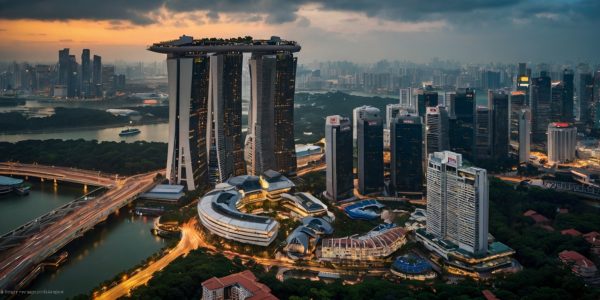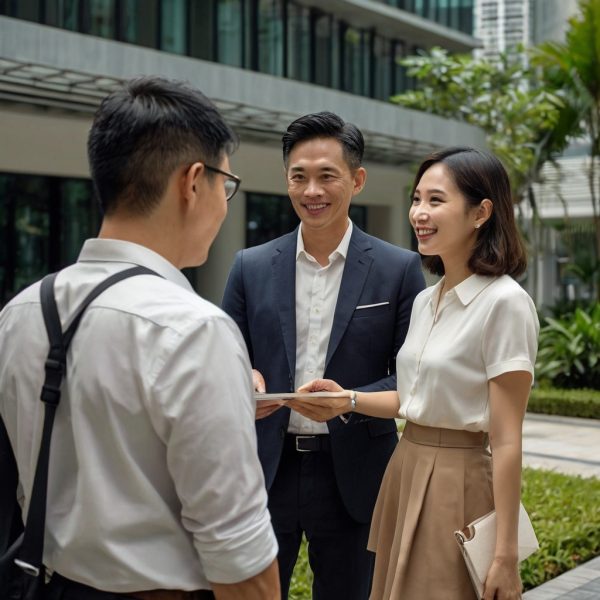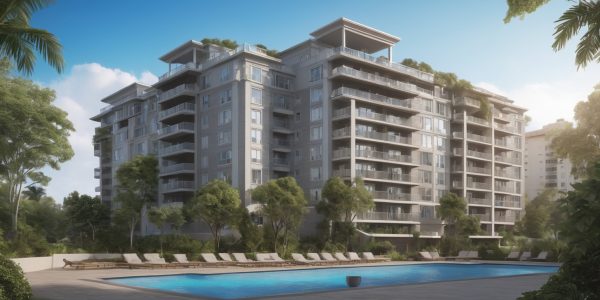Introduction
The Additional Buyer’s Stamp Duty (ABSD) is a tax imposed on property buyers in Singapore, designed to manage housing demand and curb speculative buying. ABSD impacts various buyer profiles differently, especially for foreigners and Singaporeans purchasing additional properties. In this guide, we’ll answer common questions, explore practical examples, and provide insights on ABSD’s influence in Singapore’s real estate market.

What is ABSD and Why Was it Introduced?
Definition of ABSD
ABSD is a stamp duty imposed on residential property purchases in Singapore. It applies to foreign buyers, Singaporeans purchasing multiple properties, and Permanent Residents (PRs). The tax was introduced to stabilize the housing market and limit speculative activities that drive up property prices.
Purpose of ABSD
Implemented in 2011 as part of the government’s cooling measures, ABSD aims to control property demand and keep housing prices within reach for locals. By discouraging speculative purchases, ABSD helps maintain a stable property market, which benefits genuine home buyers.

Historical Changes and Trends in ABSD Rates
Since its introduction, ABSD rates have changed multiple times. For instance, in 2013, ABSD rates were raised significantly for foreign buyers. In April 2023, ABSD increased from 30% to 60% for foreigners purchasing any residential property, a measure that impacted demand, especially in high-end properties like Wallich Residence in Tanjong Pagar. This adjustment showcases the government’s commitment to ensuring affordable housing for locals while moderating foreign investment in the sector.
2. Who Needs to Pay ABSD and When?
Applicability by Buyer Type
ABSD applies to Singaporean citizens, PRs, and foreign buyers under different conditions:
- Singaporeans pay ABSD on their second and subsequent properties.
- Permanent Residents pay ABSD from their first property purchase.
- Foreigners pay ABSD on every residential property purchase.
Example: A Singaporean buying a second property valued at SGD 1.5 million will pay a 20% ABSD, amounting to SGD 300,000.
When ABSD is Payable
ABSD is due within 14 days of property purchase. If buying under a Temporary Occupation Permit (TOP), ABSD is payable upon obtaining the TOP. For instance, a buyer of Amber Park, a new condominium, would pay ABSD only after receiving the TOP if this was a deferred-payment property.
Impact on Different Property Types
ABSD applies to all residential property types, including HDB flats, private condos, and landed homes. However, the rules may vary slightly. For instance, if you inherit a property, ABSD generally doesn’t apply unless it’s officially transferred or sold.
ABSD Rates for Different Buyer Profiles
Current ABSD Rates
Here are the ABSD rates based on buyer profiles and number of properties owned:
| Buyer profile | First property | Second property | Third property |
|---|---|---|---|
| Singaporean Citizen | 0% | 20% | 30% |
| Permanent Resident (PR) | 5% | 25% | 30% |
| Foreigner | 60% | 60% | 60% |
Answering Rate-Specific Questions
For instance, ABSD for foreigners on any residential property is set at a steep 60%, introduced to limit foreign investments in local residential housing. This high rate can impact luxury condos popular with foreign buyers, such as Marina Bay Residences, where properties regularly attract international interest.
ABSD Exemptions and Remission Options
Who Qualifies for ABSD Exemptions
Certain exemptions apply, such as properties transferred between married couples. Singaporean couples buying their first matrimonial home are also exempt from ABSD under specific conditions.
ABSD Remission for Singaporean Couples
Singaporean couples upgrading to a larger home can apply for ABSD remission if they plan to sell their first property within six months of buying a new one. For example, if a couple sells their HDB flat to purchase a private condo like Treasure at Tampines, they can apply for ABSD remission on the new property purchase.
Does ABSD Apply to Inherited Properties?
ABSD typically doesn’t apply to inherited properties unless they are formally transferred. For example, if a Singaporean inherits a condo unit from a family member, they won’t incur ABSD unless they decide to add it to their official property portfolio.
Case Studies and Practical Examples
Consider a PR purchasing a property with a Singaporean spouse: they can apply for partial ABSD remission. If they buy a second home as a couple, the PR would be liable for a reduced ABSD rate, aligning with policies to support mixed-status families in Singapore.
Payment Methods for ABSD
Using CPF to Pay ABSD
CPF savings cannot be used directly for ABSD payments; ABSD must be paid from cash on hand. However, buyers may use CPF savings to reimburse themselves later for the purchase price of the property.
Other Payment Options
Banks do not provide loans specifically for ABSD. Buyers need to use liquid funds to cover ABSD, which can be a financial burden. A workaround could be a personal loan, but this is generally discouraged due to interest costs.
Legal Considerations and Compliance
ABSD must be paid promptly to avoid penalties. Failure to comply can result in fines or additional interest charges, which reinforces the importance of understanding ABSD and planning payments accordingly.
Common Strategies to Avoid or Reduce ABSD
Legal Methods to Avoid ABSD
Common strategies include “decoupling,” where one spouse transfers ownership to the other, allowing them to avoid ABSD on a second property. This is particularly useful for Singaporean families upgrading from an HDB to a private condo.

Impact of ABSD on the Property Market
How ABSD Affects Foreign Investors
The high ABSD rate of 60% for foreigners has curbed foreign interest in Singapore’s residential market. Luxury condos like The Marq on Paterson Hill have seen a decline in foreign investment since the increase, as the hefty tax discourages non-residents from speculative buying.
Comparative Analysis with Other Countries
Singapore’s ABSD is relatively high compared to similar taxes in other countries. For instance, Hong Kong and Canada also impose additional taxes on foreign buyers, but Singapore’s rates are among the highest, illustrating the government’s firm stance on property affordability.
Future Outlook and Policy Speculations
Some speculate that ABSD rates may adjust depending on economic conditions and housing demand. The government has periodically adjusted ABSD rates to respond to property market trends, so staying informed about future changes is crucial for investors.
Conclusion
ABSD plays a significant role in maintaining Singapore’s property market stability. It affects different buyer profiles uniquely, with foreign buyers facing the highest rates. Singaporean families can benefit from exemptions and remission options under specific conditions, but understanding ABSD’s implications is essential for all property buyers. For investors, navigating ABSD requires careful planning and consideration of long-term goals, as government policies will likely continue evolving in response to market dynamics.

